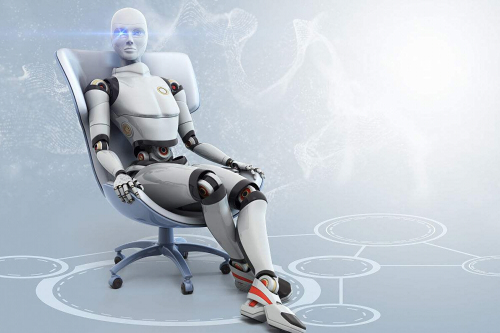Alibaba and Microsoft AI Beat Humans in Stanford Reading Test
机器在阅读测试中胜过人
They have beaten us at chess, Go and co-written a Europop album. Now computers are taking a step into a very human territory: the reading comprehension test, scourge of schoolchildren everywhere.
它们已经在国际象棋和围棋上打败我们,合写了一张欧洲流行乐专辑。现在,电脑又进军一个非常人性的领域:阅读理解测试,世界各地学生的苦难源头。
Alibaba on Monday said its artificial research outperformed mere mortals in a global reading comprehension test that seeks answers to such pressing questions as “what was Nikola Tesla’s ethnicity?” and “how big is the Amazon rainforest?”
阿里巴巴周一宣布,其人工智能在一项全球阅读理解测试中表现优于人类。该项测试提出的艰深问题包括:“尼古拉·特斯拉是什么种族的人”,以及“亚马逊雨林有多大?”
Luo Si, chief scientist of natural language processing at Alibaba’s research arm, the Institute of Data Science of Technologies, dubbed the machines’ victory “a milestone”. He said the technology has many uses, from customer service to museum tutorials to medical enquires – some of which are already being handled by chatbots globally.
司罗是阿里巴巴数据科学研究院的自然语言处理首席科学家,他把机器取得的这个胜利称为一个里程碑,称该技术有很多用途,从客户服务、博物馆讲解,到医疗查询,其中一些在全球范围已经由聊天机器人处理。
In the test administered last week, companies subjected their artificial intelligence systems to queries from the Stanford Question Answering Dataset, which assessed reading comprehension. The computers’ answers were compared against average human responses and ranked.
在上周进行的测试中,参赛公司让各自的人工智能系统解答斯坦福问答数据集的提问,该数据集评估阅读理解能力。计算机的答案被与普通人的答复进行比较,然后据此排名。

Tying in top place were Microsoft, the US software giant, and Alibaba, the Chinese tech group that began with ecommerce and is – like its peers at home and abroad – ploughing more funds into AI, much of it via its research arm.
美国软件巨擘微软与阿里巴巴并列首位,后者是一家从电子商务起家的中国科技集团,如今与国内外同行一样,加大对人工智能的研究投入,其中大部分是通过其研究机构投入。
While Microsoft and Alibaba won by the slimmest of margins – at accuracy levels a few basis points above humans’ 82.3 per cent in providing exact matches to questions – the tie provided a fitting symbol of the AI arms race being waged by the US and China.
尽管微软和阿里巴巴以微小优势胜出,在回答的精确匹配度上仅比人类的82.3%高出几个基点,但它们并列首位为美国和中国正在进行的人工智能军备竞赛提供了合适的象征。
China aims to parlay its vast troves of data, collated from its 1.4bn population including 730m who are online, and deep pockets to overtake the US in creating a $150bn industry that is seen as the next industrial revolution. AI is already being harnessed in everything from driverless cars to customising newsfeeds.
中国力求利用来自其14亿人口(其中有7.3亿上网)的海量数据和雄厚财力,在创建被视为下一场工业革命的1500亿美元产业方面超越美国。人工智能已经广泛应用于各个领域,从无人驾驶汽车到定制新闻推送。
While China’s drive is being spearheaded by government, it is cultivating homegrown tech giants including Baidu, Alibaba and Tencent to leap ahead of the US.
尽管中国的努力是由政府带领的,它也在培育本土科技巨头,包括百度、阿里巴巴和腾讯,以求超越美国。
Baidu made an early bet on AI, and is leading its rivals in autonomous driving, some of which was on show at last week’s Consumer Electronics Show in Las Vegas. Tencent, which boasts just shy of 1bn monthly active users on its social media WeChat app, and Alibaba have adopted AI in operations such as customising news and ads, and are investing in new fields.
百度更早投入人工智能的研究,目前在自主驾驶方面领先于竞争对手,其中一些成果在上周于拉斯维加斯举行的消费电子展上亮相。腾讯旗下的社交媒体应用微信号称拥有近10亿月活跃用户,该公司和阿里巴巴都已在定制新闻和广告等业务中采用人工智能,并投资于新领域。
Similar technology, reliant on drilling down in texts such as Wikipedia to learn and parrot information, has been used for answering the presumably more prosaic questions that flood in from buyers (“where’s my package?”) on Alibaba’s Singles Day shopping festival.
阅读技术依赖于精读文本,比如维基百科的文章,以学习和模仿信息。类似的技术已被用于买家提出的常见问题(比如“我的包裹在哪里?”)。在阿里巴巴的光棍日购物节期间,这类问题会大量涌入。
下载:英文、中文版本








